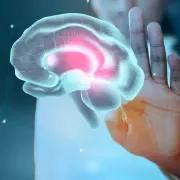Role of Genetics in Neurological Disorders
In This Article
Role of Genetics in Neurological Disorders
Ruban
Updated on June 10, 2024
Medically verified by Dr. Arya
Fact checked by Dr. Pournami

Neurology
10 min read
Have you ever questioned why certain illnesses run in families? It seems that our genes have an impact on diverse fitness illnesses, together with neurological disorders, which affect the mind and nerve system.
In this Karetrip blog post, we are able to examine how genetics have an effect on neurological illnesses. We`ll move over what genes are, how they may be changed, and the way this could have an impact on your mind and nerves.
Neurological Disorders: What are They ?
Neurological illnesses are described as an irrelevant feature of the peripheral or primary fearful device because of impaired electric impulses in the course of the mind and/or fearful device. It can give heterogeneous signs and symptoms in line with the components of the device worried in those pathologic processes.
- Growing proof on genetic additives of neurological disorder has been gathered at some stage in recent years.
- Genetic research has opened the manner for knowing the underlying pathology of many neurological issues.
- The final results of contemporary extreme studies into the genetics of neurological issues will optimistically be the creation of recent diagnostic equipment and the invention of capacity objectives for brand new and greater powerful medicinal drugs and preventive measures.
The Genetic Blueprint: A Primer
Before diving into the specifics of neurological issues, it's important to understand the fundamentals of genetics.
Every mobileular in our frame incorporates DNA, a protracted molecule that contains our genetic information. This DNA is prepared into systems referred to as chromosomes, and people generally have forty six of them.
Within those chromosomes are genes, that are segments of DNA that dictate how our bodies grow, develop, and function.
-
Single Gene Mutations (Mendelian Disorders) Some neurological situations are resulting from mutations in an unmarried gene. These issues frequently observe Mendelian inheritance patterns, which includes autosomal dominant, autosomal recessive, or X-related.
-
Multiple Gene (Polygenic) Involvement Some issues rise up from the mixed consequences of mutations in a couple of genes, frequently along with environmental elements. These are termed polygenic or complicated issues. Alzheimer's disease, for instance, has numerous genetic hazard elements, with the APOE ε4 allele being the most prominent.
-
Copy Number Variations (CNVs) CNVs are changes withinside the DNA that bring about the mobileular having an peculiar quantity of copies of 1 or greater sections of the DNA. CNVs may be related to diverse neurological problems, which includes a few varieties of epilepsy and autism spectrum problems.
-
Mitochondrial DNA Mutations The mitochondria have their personal DNA, break away the nuclear DNA. Mutations in mitochondrial DNA can cause neurological problems for the reason that the mind is particularly depending on the strength produced with the aid of using mitochondria.
Examples consist of Leber's hereditary optic neuropathy and a few varieties of mitochondrial myopathy.
-
Repeat Expansion Disorders Some neurological problems are because of the peculiar repetition of brief sequences of DNA. Over time, those repeats can expand, leading to disease. Examples consist of:
-
Huntington's disease (CAG repeat expansion)
-
Fragile X syndrome (CGG repeat expansion)
-
Spinocerebellar ataxias (diverse repeat expansions)
-
Epigenetic Changes Epigenetics refers to modifications in gene pastime that don't contain changes to the underlying DNA sequence. These modifications can have an effect on gene expression and are implicated in a few neurological situations. Rett syndrome, for instance, includes mutations withinside the MECP2 gene, which performs a function in epigenetic regulation.
-
Chromosomal Abnormalities Changes withinside the shape or quantity of chromosomes can cause neurological problems. For example, Down syndrome is because of a further reproduction of chromosome 21.
 10 min read
10 min read10 Neurological Benefits of Exercise - Positive Psychology
 10 min read
10 min readChoosing the Right Neurology Hospital: Factors to Consider for Patients and Families
 10 min read
10 min readTop 10 Neurology Hospitals in India
Get a Callback Now
Genetics and Neurological Disorders: The Connection
Neurological problems embody an extensive variety of situations that have an effect on the mind, spinal cord, and nerves. From Alzheimer's sickness and Parkinson`s to epilepsy and more than one sclerosis, the spectrum is vast.
Neurological situations can get up from a mixture of genetic, environmental, and way of life elements. However, numerous neurological problems have a regarded genetic predisposition, both because of particular gene mutations or a mixture of genetic elements that boom the threat.
Here are a few neurological situations with a genetic component:
- ALZHEIMER'S DISEASE
- PARKINSON'S DISEASE
- -HUNTINGTON'S DISEASE
- AMYOTROPHIC LATERAL SCLEROSIS (ALS)
- EPILEPSY
- SPINOCEREBELLAR ATAXIAS
- FRIEDREICH'S ATAXIA
- MUSCULAR DYSTROPHIES
- CHARCOT-MARIE-TOOTH DISEASE
- NEUROFIBROMATOSIS
- TUBEROUS SCLEROSIS
- RETT SYNDROME
- WILSON'S DISEASE
- PRION DISEASES
Empowering Families with Genetic Testing
For families with a history of neurological disorders, genetic testing can be a powerful tool. It can: BOX
- Provide a Diagnosis: For a few, genetic checking out can verify the presence of a selected sickness, specially while signs and symptoms are ambiguous.
- Inform Family Planning: Couples can gain insights into the chance of passing on genetic mutations to their offspring.
- Guide Treatment: In a few cases, know-how the genetic make-up of a sickness can cause extra centered and powerful treatments.
However, it’s crucial for families to approach genetic testing with caution and awareness. The outcomes can result in quite a number of emotions, from alleviation to anxiety. It's consistently advocated to go through checking out with the steerage of a genetic counselor who can offer context, interpretation, and support.
FAQs
1. Can genes cause neurological disorders?
Yes, mutations (changes) in precise genes can immediately cause a few neurological disorders. Examples consist of Huntington`s ailment and a few varieties of epilepsy.
2. Do genes continually imply I'll get a neurological disorder? Not necessarily! Some genes handiest boom the chance, and different elements like surroundings can come into play. It's like having a better risk of rolling a particular quantity on a die, however now no longer a guarantee.
3. Can I be examined for genetic risks? Genetic trying out is to be had for a few neurological disorders. This can assist people to apprehend their chance and make knowledgeable selections about healthcare.
Genes are like commands that construct and hold our frightened system.
Changes in genes can now and again result in neurological issues.
Genetics isn`t the handiest factor - surroundings additionally performs a role.
Genetic checking out can offer precious data approximately neurological risk.
Consider including a phase on not unusual place neurological issues with a genetic component (e.g., Alzheimer's disease, Parkinson's disease). Briefly give an explanation for the suspected gene and its function.
Emphasize the significance of consulting a healthcare expert for customized recommendation and genetic checking out options.
You can finish via means of citing ongoing studies in neurogenetics and the capability for destiny remedies primarily based totally on genetic understanding.
Source Links
premierneurologycenter


